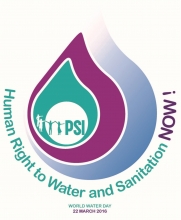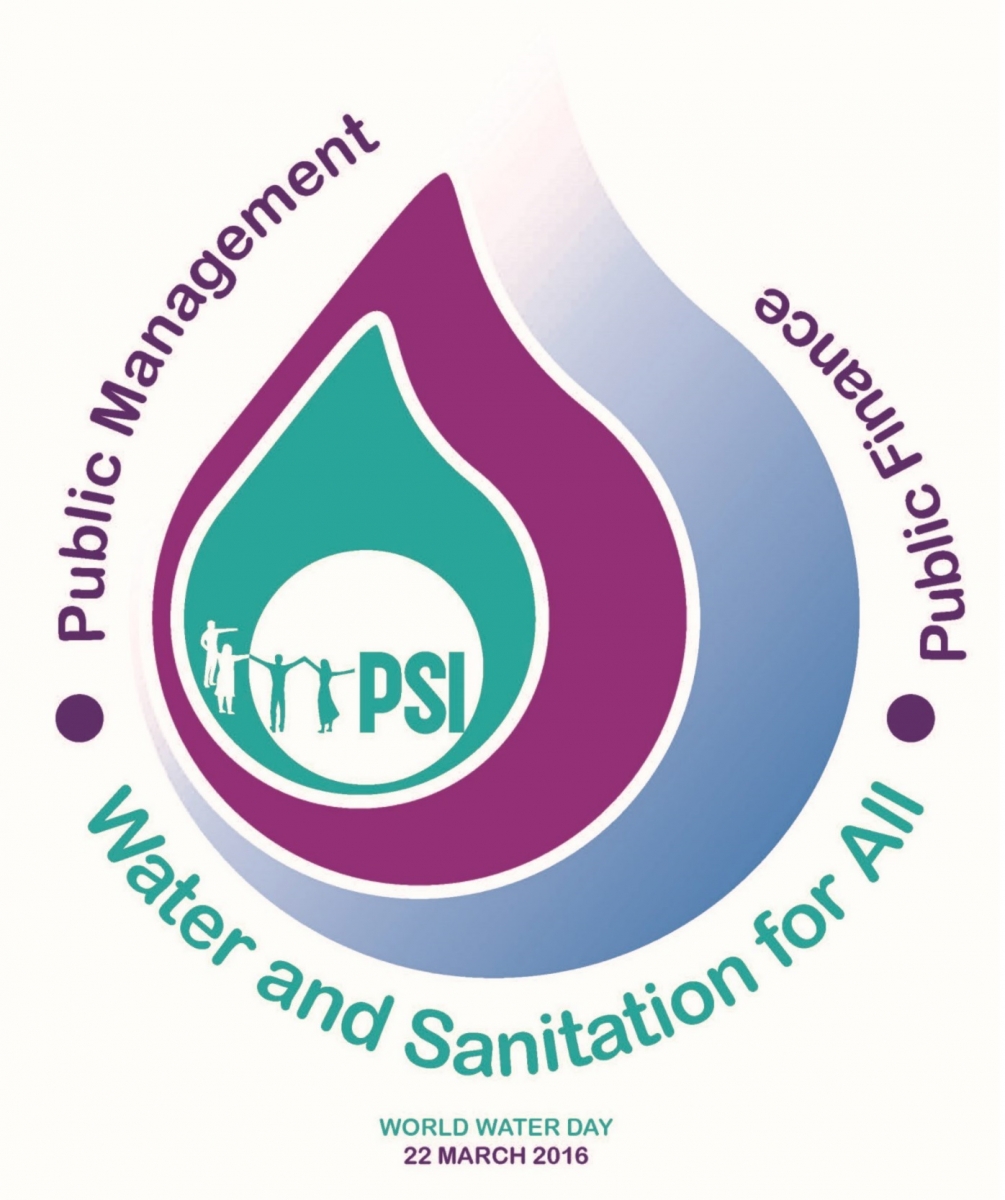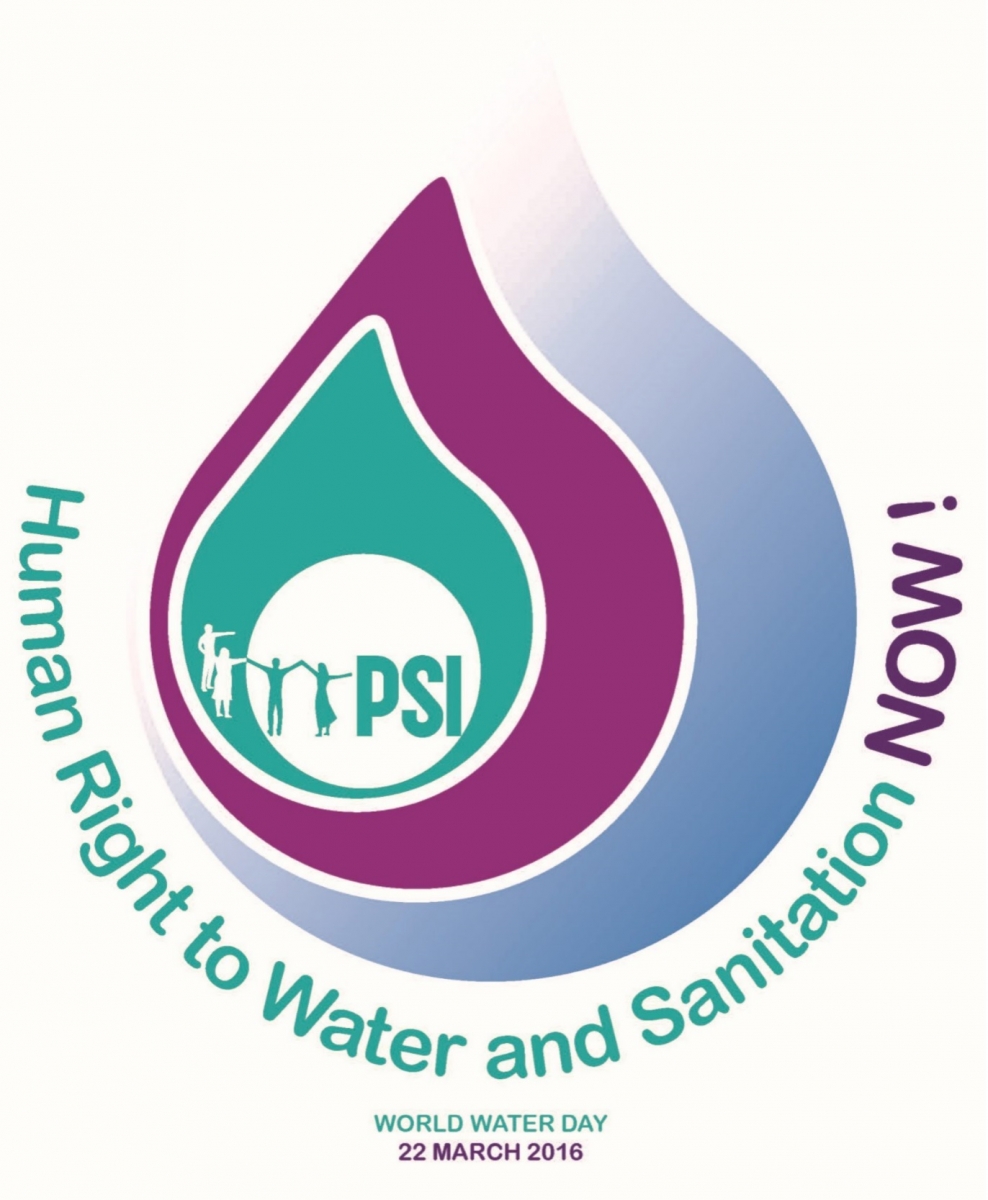Water and Sanitation are Human Rights, NOW!

On this page, you will find: a PSI statement outlining the challenges ahead; videos from affiliates around the world; Water Day logos which can be downloaded; a toolkit for advancing the human rights; two documents submitted to the UN special rapporteur on the human rights to water and sanitation
World Water Day 2016 comes with new challenges and opportunities. In September 2015, the member states of the United Nations adopted the Sustainable Development Goals (SDGs). SDG goal 6 requires that governments ensure by 2030 universal access to ‘safe and affordable drinking water’ and to sanitation and hygiene services.[i] However, thanks in part to the global financial crisis of 2008 and the subsequent austerity policies, governments hope and assume that the private sector will provide much of the finance for the SDGs.
In the years prior to adopting the SDGs, UN member states voted a number of resolutions affirming that access to water and sanitation are human rights - with all of the attendant obligations on governments.[ii] PSI is working with unions and allies to facilitate and ensure the universal respect of these hard-fought human rights (see Resources below).
At the same time, the multinational corporations are lobbying to ensure their privileged access to all public services – the profit potential is huge, with steady cash flow. One of their tools is the new round of trade negotiations, known by their various acronyms: TiSA, TPP, TTIP, CETA, etc. The corporate lobby is also active within the hallways of the UN, seeking to portray their interests as benign or sustainable. In the water sector, they also use the World Bank and regional banks, the OECD, the World Economic Forum in Davos, the World Water Council in Marseille, and possibly a new High Level Panel on water to advise the UN Secretary General.
Global population growth, increasing urbanization, and the impacts of climate change will combine to make access to water more crucial, and potentially, much more profitable. Therefore, we anticipate, and are already witnessing, a renewed push for public-private partnerships (PPPs), despite the long list of problems and failures. Many agencies of the UN will support water and sanitation PPPs - most often without realizing the dangers.
Says Rosa Pavanelli, General Secretary of Public Services International: “We oppose PPPs in the water and sanitation sector. This fundamental natural resource, essential to all life on the planet, must not become another market commodity, potentially more valuable than oil, managed in the interest of a wealthy minority. Our affiliated unions are working with civil society allies in countries across the world to block these misplaced privatisations.”
“We defend a rights-based approach which will require public finance and public management to ensure universal access. People should have access to sufficient quantities of safe, drinkable water and sanitation services in their homes. Public management needs to be effective, transparent and participatory. Water utilities need to pay specific attention to the needs of women and vulnerable people. And local governments, most often responsible for water delivery, need the tools, including financial.”
ILO Director-General Guy Ryder, who assumed the chair of UN-Water, calls for improved working conditions for all workers in the water sector.[iii] Implementing the human rights and SDG 6 can be a source of Decent Jobs. As well, focusing on access for women and poor people can free them from the (unpaid) drudgery of fetching water and allow them to engage in more productive and rewarding activities. It will also reduce water-borne illnesses and diseases and reduce child mortality.
[iii] http://www.ilo.org/global/about-the-ilo/multimedia/video/institutional-videos/WCMS_460936/lang--en/index.htm
Logos
Download the logos by clicking on the image. They are available in English, French, Spanish and Portuguese in both JPG and PDF format.
Videos
Resources
The UN Special Rapporteur on the human rights to safe drinking water and sanitation is conducting studies for two reports in 2016. One report will address gender equality in the realization of the human rights to water and sanitation, and another will on development cooperation and the human rights obligations of bilateral and multilateral donors in extending grants and loans, providing technical and programming support and policy advice to developing countries.
Gender Equality
PSI submitted case studies from India, Kenya, Argentina and Ecuador on the gender implications in the sector, with a focus on legislation, public finance, participatory decision-making, and monitoring. They provide direct testimony from union leaders in water and sanitation utilities. Addressing gender inequality and discrimination in the sector will require comprehensive actions by governments, which will significantly improve living standards. Here: in English and in Spanish.
Development Cooperation
PSI provided input to an assessment from the water justice network of development cooperation support for the implementation of human rights. Development partners, including the World Bank, have violated human rights, including with their conditionalities for private sector participation. We call for the suspension of grant and loan programs which implicitly or explicitly promote PPP schemes. The implementation of Sustainable Development Goal #6 on water and sanitation presents opportunities to improve the practices of development partners. We point to the examples of public-public partnerships (PUPs), which are gaining in popularity but have not received adequate support from development partners – in part, because PUPs are not-for-profit. We also call for more rigorous measures to ensure that all rights holders can participate in decision-making.
Human Rights Toolkit
As a member of the water justice network, PSI helped develop the first three modules of a toolkit designed to support local campaigns. The three modules focus on re-municipalization, public-community cooperation, and finance for public services. We anticipate new challenges from the privateers and their allies in the years to come, and trade unions and their local allies will be able to use these new tools to connect their local fights to the global actors.
Additional links
- Water sector workers meet in Buenos Aires to defend the human rights to water
- PSI stresses the failures of PPPs at UN World Water Day event
- A RadioLabour interview with David Boys, PSI's Deputy General-Secretary on World Water Day 2016
- Lagos Water Campaign Update
- Lagos Water Campaign website
- Nagpur Water Campaign
- PSI condemns the assassination of indigenous leader Berta Cáceres in Honduras
- Support EPSU's action on World Water Day



